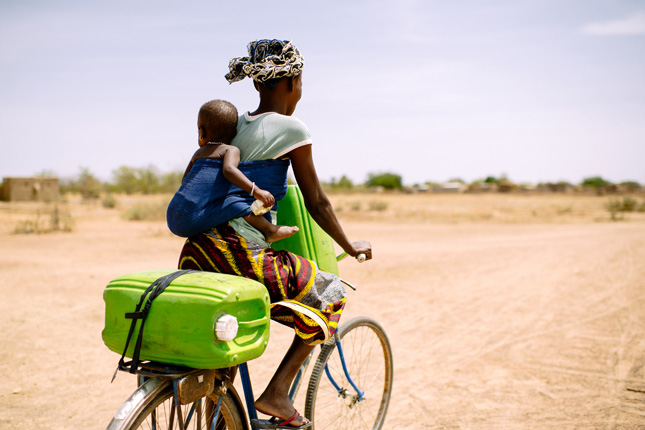-
Inclusive Disaster Risk Reduction: Women and Climate Change Adaptation
April 10, 2018 By Ellie Anderson
According to a 2015 Georgetown University report on women and climate change, “the impacts of climate change – droughts, floods, extreme weather, increased incidence of disease, and growing food and water insecurity – disproportionately affect the world’s 1.3 billion poor, the majority of whom are women.”
But focusing on women’s vulnerability overlooks their strengths. “The capacity of the women to address climate change—not only adaptation, but also mitigation; the innovation that they bring as incredible agents of change—it’s something that we’re missing,” said Lorena Aguilar, global senior gender advisor of the International Union for Conservation and Nature, at a recent event on women and climate change at Georgetown University. “We have been advocating for being gender responsive, not just gender sensitive,” she said.
“Women are a fundamental engine of growth,” said Katie Taylor, executive director of the Pan American Development Foundation. The 240 million adult women across Latin America alone could build more resilient communities “if we could harness the capabilities and equip these women with the tools, the education, the capacity to go and help transform our region,” said Taylor.
“They know the community, they know who needs what,” said Margaret Arnold, senior development specialist at the World Bank. “They organize out of necessity, but it has these beautiful developmental ripple effects when they’re empowered and given a role.”
“It’s about formalizing their roles,” so women are “recognized as leaders,” said Arnold.
“Many devastating disasters move far beyond national borders, and need to be addressed or prevented through close and inclusive collaboration,” said Christine Hsueh, deputy representative of Taipei Economic and Cultural Representative Office in the United States.
“Disasters can be disruptors” of cultural norms surrounding gender. “You can move on things right after disaster that sometimes you can’t move on in ‘normal’ times,” said Arnold, including gender norms.
At the same time, respecting culture and putting community needs first is critical to understanding how to design disaster risk reduction projects and work with communities to prepare, said Minerva Pinelo, project director for the Community Preparedness and Resilience Project in Belize.
“Empowered women, working together, can make a huge difference,” said Hsueh.
Read More:
- Women displaced by natural disasters are vulnerable to gender-based violence, but understanding the links between displacement, climate change, and gender can help women on the front lines.
- Investing in girls’ education can address the underlying gender inequalities that contribute to women’s vulnerability to climate change.
- A gendered response to climate change impacts is key to building climate resilience.
Women in Malaysia, Bangladesh, and the Philippines are finding ways to be climate champions, not climate victims.
Sources: Georgetown Institute for Women, Peace, and Security; Oxfam
Photo Credit: Collecting water, March 2013, courtesy of CIFOR
 A Publication of the Stimson Center.
A Publication of the Stimson Center.



